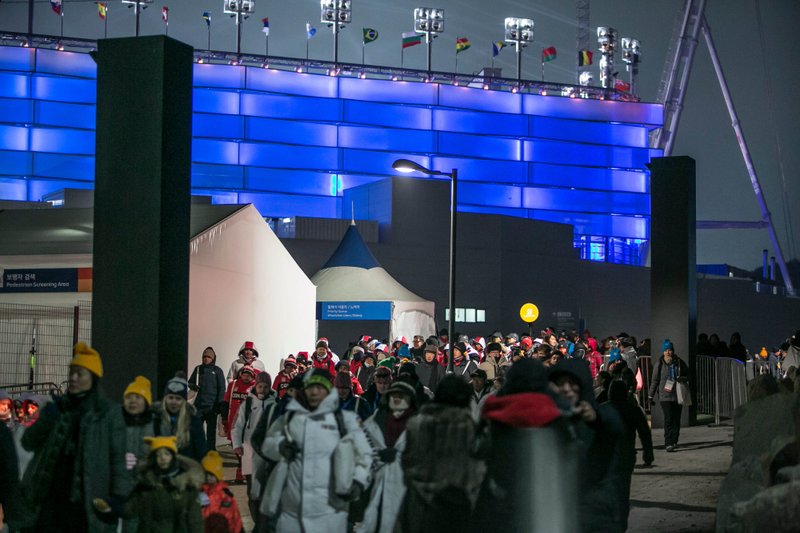DAEGWALLYEONG, South Korea -- With artful simplicity and an earnest message, the opening ceremony delivered on its intent to make peace the star Friday night. It was aspirational, dreamy, idyllic. Oh, to live in the reimagined world that executive creative director Song Seung-whan created for five children to travel through time and experience.
The message wasn't subtle. Host cities don't spend NFL quarterback money on these parties to be understated. Still, the Pyeongchang Olympics opened with a reassuring tone despite the organizers' insistence on making the peace theme pop. The spectacle was entitled "Peace in Motion," but really it was about hope. It's impossible to simply conjure peace in a world that can be cruel, divided and stubborn. But there always should be hope for it, and while many world conflicts remain clear and foreboding, optimism filled the air like the fireworks bursting at Pyeongchang Olympic Stadium on this frigid night.
The director's artistic touch framed this meaningful celebration, but it would not have graduated to powerful without some real humanity. That happened when North and South Korea marched into the stadium under a unified flag. For all the legitimate doubt about North Korea's intentions, the historic moment was breathtaking, two countries as one again, wearing white parkas with "KOREA" stitched on them, waving little white flags featuring an image of the countries' peninsula in blue and basking in rock-star applause.
It led to the grandest of thoughts.
"The Pyeongchang 2018 Winter Games will guide us to a world of reconciliation," said Lee Hee-beom, the president and CEO of the Pyeongchang Olympics organizing committee. "Just as the Seoul 1988 Olympic Games broke down the Cold War barrier between East and West 30 years ago, we hope that the two Koreas participating together ... will once again bring peace over our land."
Can we keep dreaming? For the next 16 days, perhaps. But let's be real: Even that will be a challenge. The Olympics can try to be peaceful, but it won't eliminate conflict. The Russia doping scandal still looms over these Games, and even though the toothless IOC is trying to marginalize the country, making the diminished team compete under the name "Olympic Athletes From Russia," more than 160 Russians remain eligible to participate, complicating these Olympics and adding tension, jealousy and outrage to the competition.
North and South Korea made a temporary statement, and their leaders will attempt to enhance diplomacy this month, but nothing is promised. The United States and North Korea will remain enemies with bombastic presidents who love exchanging nuclear taunts.
Sports have incredible unifying powers, but you can admire Pyeongchang's efforts and also wonder whether the organizers have had too much influence in forcing harmony. The best moments of sports triumphing over society's ills occur naturally. In 1936, Jesse Owens didn't follow a script to shred Adolf Hitler's theories of white supremacy. Neither did the U.S. men's rowing team that same year when it claimed an unlikely gold medal over Germany with Hitler watching.
Skepticism is fine. It should be appreciated because it's vital to drawing a line between hope and naiveté. In a swift (by this event's standard) two hours and 17 minutes, Seung-whan directed the perfect fairytale for those who need an escape from worldwide drama. It was beautiful. And then the Korean nations upped the peace ante simply by walking into a stadium together for about four minutes. But it was all a fantasy to depict how life should be. We're still left to deal with what it actually is.
There is hope, however. On the same night that the U.S. bopped into the Olympics to the enduring Korean pop hit "Gangnam Style," the same night that Tonga flag bearer Pita Taufatofua went shirtless and raided the world's body oil supply again, the same night that Jamaica dazzled with its synchronized selfie dancing, Korea made a statement after 73 years of living separately.
It will not last. But for a brief and powerful moment of acceptance and reconciliation, the world's health improved. The unending pursuit of peace felt worth the hassle. All of our children, not just Seung-whan's five characters, really did travel to a different time.
Sports on 02/10/2018
